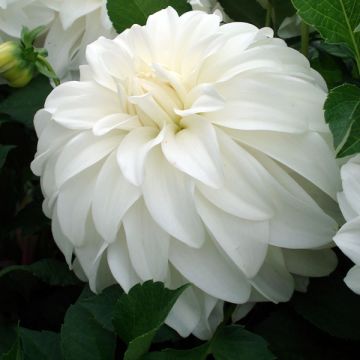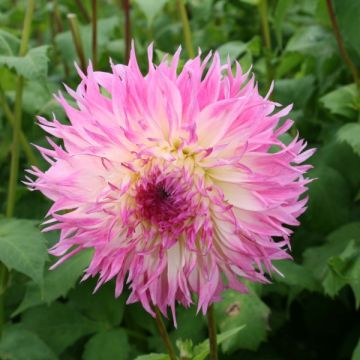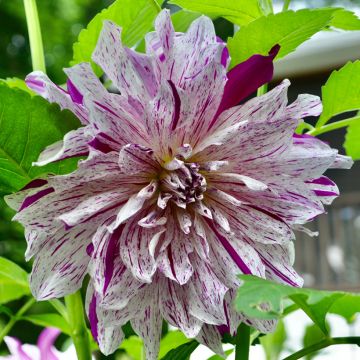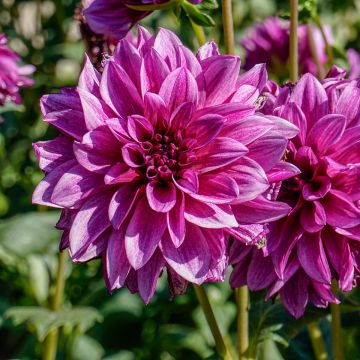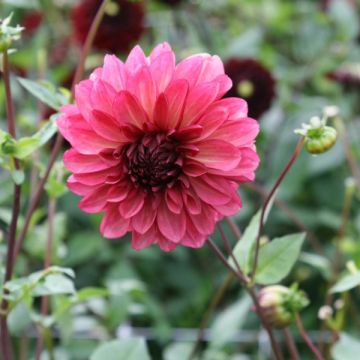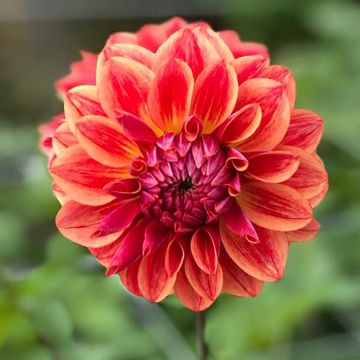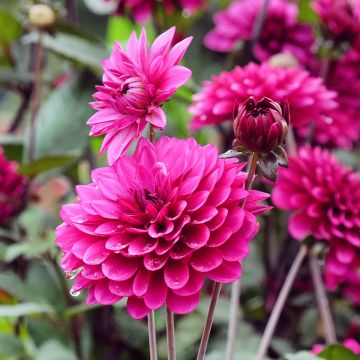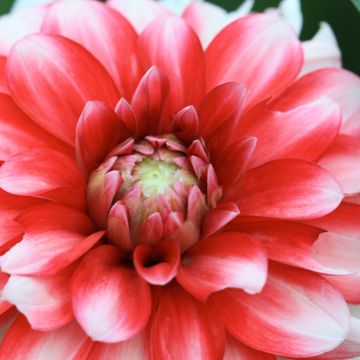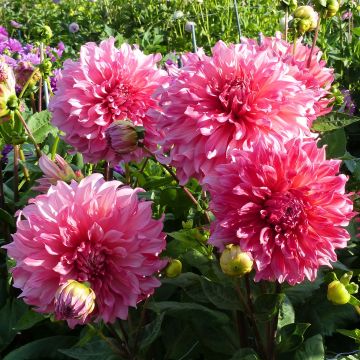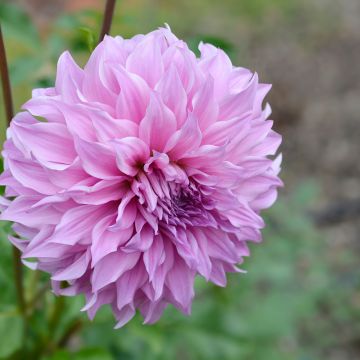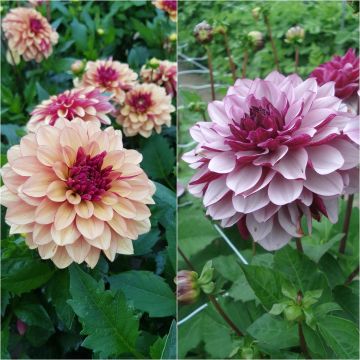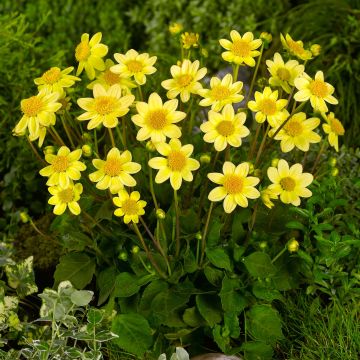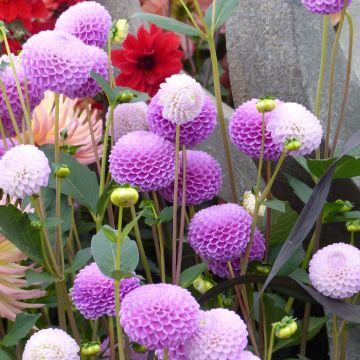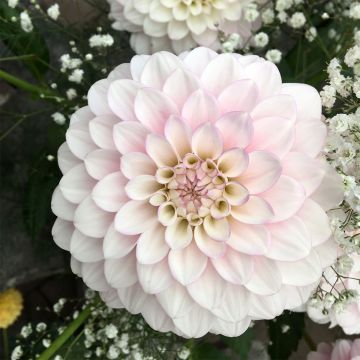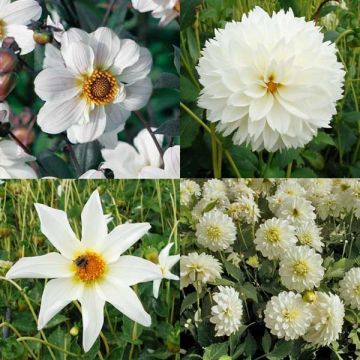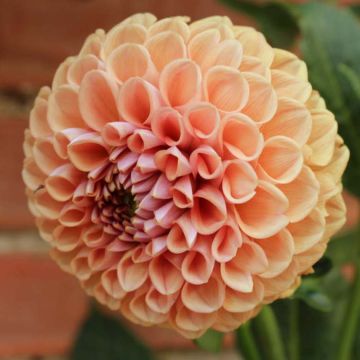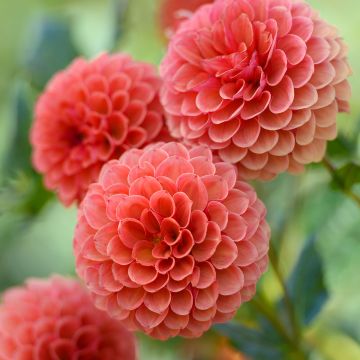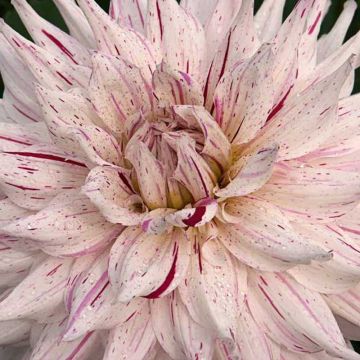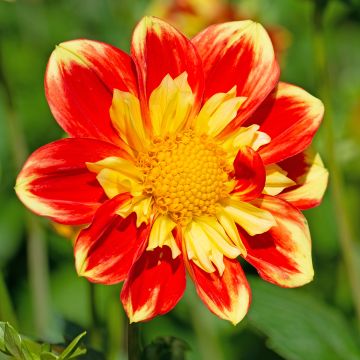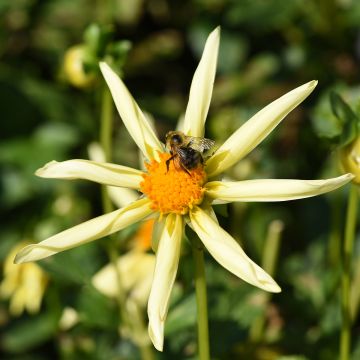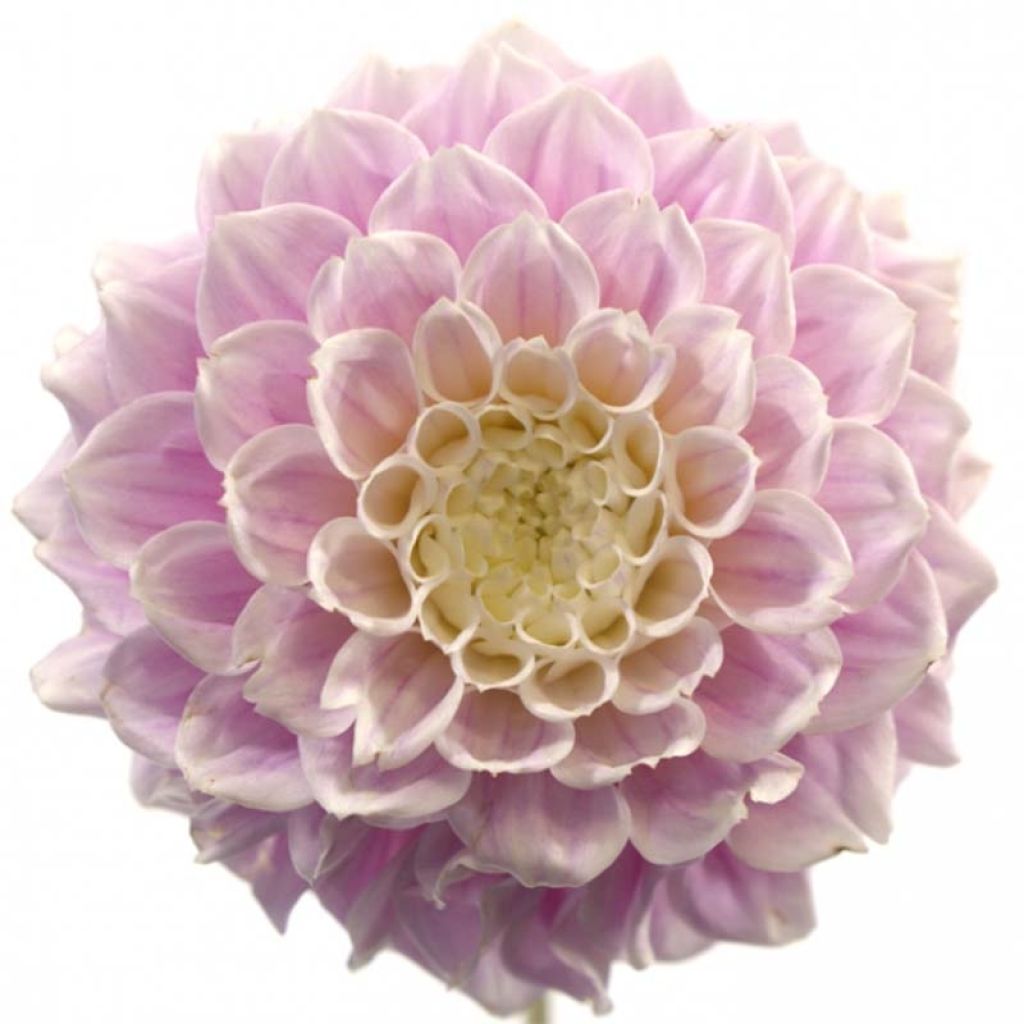

Dahlia Sweet Love
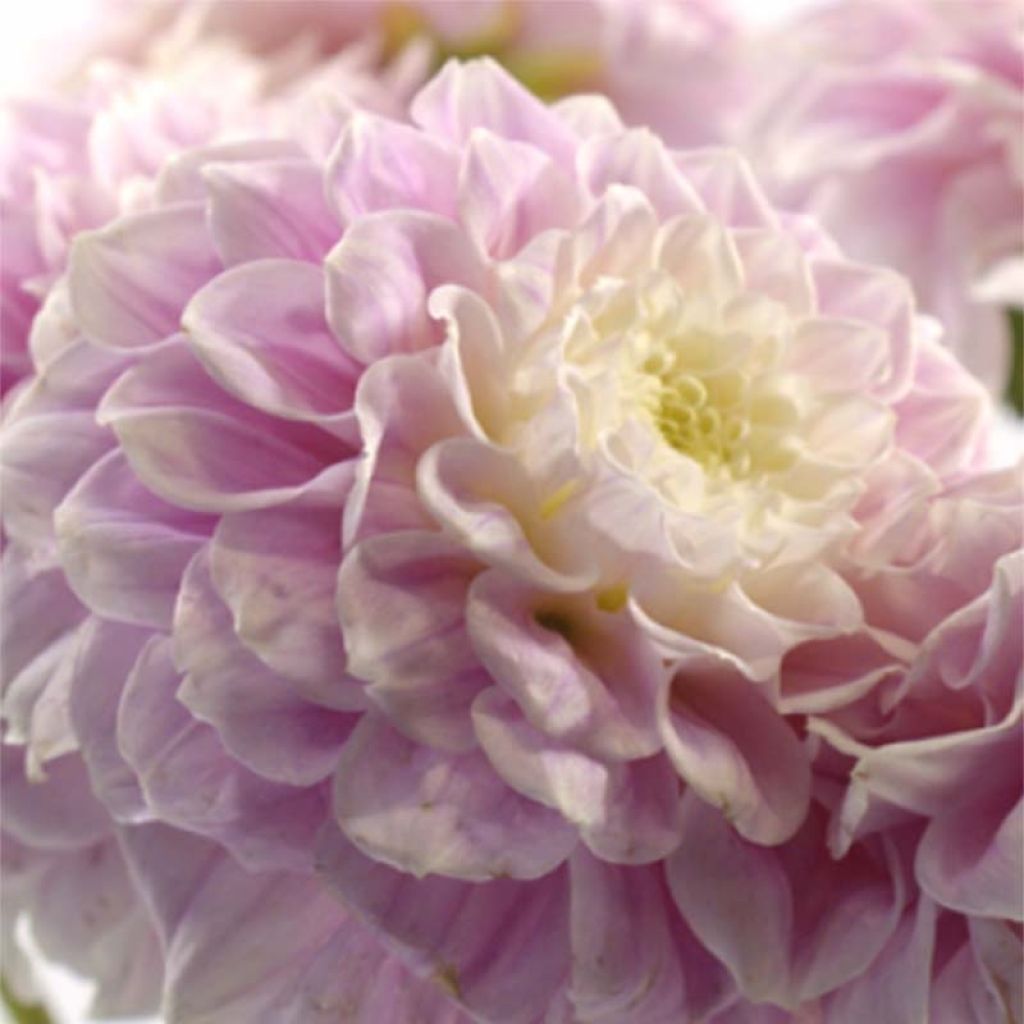

Dahlia Sweet Love
Dahlia Sweet Love
Dahlia Sweet Love
Dahlia
Order in the next for dispatch today!
Dispatch by letter from €3.90.
Delivery charge from €5.90 Oversize package delivery charge from €6.90.
More information
This item is not available in your country.
Schedule delivery date,
and select date in basket
This plant carries a 6 months recovery warranty
More information
We guarantee the quality of our plants for a full growing cycle, and will replace at our expense any plant that fails to recover under normal climatic and planting conditions.
From €5.90 for pickup delivery and €6.90 for home delivery
Express home delivery from €8.90.
Does this plant fit my garden?
Set up your Plantfit profile →
Description
Dahlia Sweet Love is a variety of beautiful, well-double flowers, all rounded, whose architecture highlights a trendy pastel colour, ranging from pink to cream. Its flowers are organized in cells like ball dahlias, with tubular petals in the heart of the flower turning cream-coloured over time. The plant generously blooms from summer to the first cold weather, forming a beautiful bushy clump. Carried by long sturdy stems, the flowers of this dahlia maintain their impeccable appearance in bouquets as well as in flower beds.
Dahlias belong to the Asteraceae family and are originally from the high plateaus of Mexico. Currently, the approximately 25,000 horticultural varieties created by humans have arrived in gardens around the world, much to our delight.
The 'Sweet Love' variety will reach a height of approximately 90 cm (35in) and a diameter of 60 cm (24in) after 3 to 4 months of cultivation. It is classified as a decorative dahlia, which is a horticultural category defined by the flower's shape. In this group, the coloured ligules of the capitulum are regularly arranged in a spiral and can be curved towards the stem or fringed, for example. The 'flowers' or capitula of 'Sweet Love', widely displayed, have a diameter of about 10 cm (4in). The ligules or 'petals' are oval-shaped and tubular. Their colour ranges from lilac pink to white cream, from the periphery to the centre. The golden heart of the flower only appears late, just before wilting. It blooms from July to October. The habit is bushy and dense. The highly branched stems are hollow and the leaves are opposite, pinnatisect, meaning they are divided into 3 or 5 highly toothed lobes. The leaves are shiny and dark green, just like the floral stems.
To encourage repeat blooming, make sure to remove faded flowers, or even better, regularly create large colourful bouquets by combining it with other varieties. 'Sweet Love' pairs particularly well with pink, mauve, violet, and white flowers. In flower beds, this dahlia will create vibrant spots alongside pink Echinaceas, which bloom at the same time, as well as Daylilies and Asters. Japanese anemones are good companions for the late season, as well as grasses (compact Miscanthus, Pennisetum, Stipa, Muhlenbergia capillaris, Eragrostis spectabilis). This modest-sized variety is also suitable for container gardening, to easily decorate the patio or balcony.
As a star plant in ornamental gardens, dahlias are undoubtedly beautiful flowers. They are perfect in flower beds but can also enhance vegetable gardens. In Mexico, this tuberous plant was initially cultivated as a root vegetable for consumption. Its poor taste quickly relegated it to the status of an ornamental plant. Since then, the interest in their beautiful exuberance has never waned.
Report an error about the product description
Dahlia Sweet Love in pictures
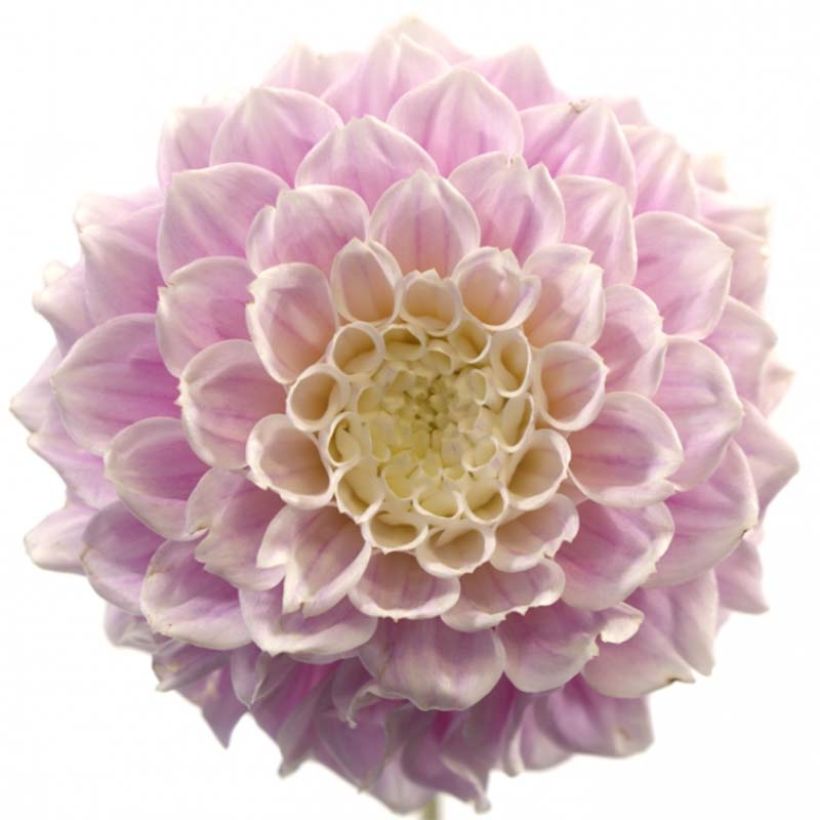

Plant habit
Flowering
Foliage
Botanical data
Dahlia
Sweet Love
Asteraceae
Dahlia
Cultivar or hybrid
Other Ornamental Dahlias
Planting and care
Dahlia 'Sweet Love' is easy to grow in all regions. For abundant flowering, it is good to follow a few simple rules. Plant the tubers in full sun as soon as the last frost is over. Rich, damp, and well-drained soil is perfect. However, waterlogging would promote tuber rot. Feel free to amend the soil with compost and sand if necessary. Work the soil deeply and enrich it, for example, with bonemeal. Place your tuber and crumble the soil well to fill without air pockets. Your dahlia should be covered with about 6 cm (2in) of soil. At the end of planting, water generously once and then regularly repeat this watering during the first 6 weeks to help with rooting.
Dahlias are sensitive to cold, so they need to be overwintered. In November, the first frost blackens the foliage, which is the time to dig them up. Carefully remove the tubers, removing as much soil as possible. Let the foliage dry so that the tubers can replenish their reserves. Then cut the stems to 10 cm (4in). Spread your bulbs in a box on newspaper. Store them in a frost-free, dry, cool, and dark place, such as a frost-free garage or attic, for example. In warmer regions, or areas close to the coast, where there are few frosty days per year, it is possible to leave them in place. In this case, simply cover the ground with a carpet of leaves or straw for protection.
Planting period
Intended location
Care
This item has not been reviewed yet - be the first to leave a review about it.
Dahlias
Haven't found what you were looking for?
Hardiness is the lowest winter temperature a plant can endure without suffering serious damage or even dying. However, hardiness is affected by location (a sheltered area, such as a patio), protection (winter cover) and soil type (hardiness is improved by well-drained soil).

Photo Sharing Terms & Conditions
In order to encourage gardeners to interact and share their experiences, Promesse de fleurs offers various media enabling content to be uploaded onto its Site - in particular via the ‘Photo sharing’ module.
The User agrees to refrain from:
- Posting any content that is illegal, prejudicial, insulting, racist, inciteful to hatred, revisionist, contrary to public decency, that infringes on privacy or on the privacy rights of third parties, in particular the publicity rights of persons and goods, intellectual property rights, or the right to privacy.
- Submitting content on behalf of a third party;
- Impersonate the identity of a third party and/or publish any personal information about a third party;
In general, the User undertakes to refrain from any unethical behaviour.
All Content (in particular text, comments, files, images, photos, videos, creative works, etc.), which may be subject to property or intellectual property rights, image or other private rights, shall remain the property of the User, subject to the limited rights granted by the terms of the licence granted by Promesse de fleurs as stated below. Users are at liberty to publish or not to publish such Content on the Site, notably via the ‘Photo Sharing’ facility, and accept that this Content shall be made public and freely accessible, notably on the Internet.
Users further acknowledge, undertake to have ,and guarantee that they hold all necessary rights and permissions to publish such material on the Site, in particular with regard to the legislation in force pertaining to any privacy, property, intellectual property, image, or contractual rights, or rights of any other nature. By publishing such Content on the Site, Users acknowledge accepting full liability as publishers of the Content within the meaning of the law, and grant Promesse de fleurs, free of charge, an inclusive, worldwide licence for the said Content for the entire duration of its publication, including all reproduction, representation, up/downloading, displaying, performing, transmission, and storage rights.
Users also grant permission for their name to be linked to the Content and accept that this link may not always be made available.
By engaging in posting material, Users consent to their Content becoming automatically accessible on the Internet, in particular on other sites and/or blogs and/or web pages of the Promesse de fleurs site, including in particular social pages and the Promesse de fleurs catalogue.
Users may secure the removal of entrusted content free of charge by issuing a simple request via our contact form.
The flowering period indicated on our website applies to countries and regions located in USDA zone 8 (France, the United Kingdom, Ireland, the Netherlands, etc.)
It will vary according to where you live:
- In zones 9 to 10 (Italy, Spain, Greece, etc.), flowering will occur about 2 to 4 weeks earlier.
- In zones 6 to 7 (Germany, Poland, Slovenia, and lower mountainous regions), flowering will be delayed by 2 to 3 weeks.
- In zone 5 (Central Europe, Scandinavia), blooming will be delayed by 3 to 5 weeks.
In temperate climates, pruning of spring-flowering shrubs (forsythia, spireas, etc.) should be done just after flowering.
Pruning of summer-flowering shrubs (Indian Lilac, Perovskia, etc.) can be done in winter or spring.
In cold regions as well as with frost-sensitive plants, avoid pruning too early when severe frosts may still occur.
The planting period indicated on our website applies to countries and regions located in USDA zone 8 (France, United Kingdom, Ireland, Netherlands).
It will vary according to where you live:
- In Mediterranean zones (Marseille, Madrid, Milan, etc.), autumn and winter are the best planting periods.
- In continental zones (Strasbourg, Munich, Vienna, etc.), delay planting by 2 to 3 weeks in spring and bring it forward by 2 to 4 weeks in autumn.
- In mountainous regions (the Alps, Pyrenees, Carpathians, etc.), it is best to plant in late spring (May-June) or late summer (August-September).
The harvesting period indicated on our website applies to countries and regions in USDA zone 8 (France, England, Ireland, the Netherlands).
In colder areas (Scandinavia, Poland, Austria...) fruit and vegetable harvests are likely to be delayed by 3-4 weeks.
In warmer areas (Italy, Spain, Greece, etc.), harvesting will probably take place earlier, depending on weather conditions.
The sowing periods indicated on our website apply to countries and regions within USDA Zone 8 (France, UK, Ireland, Netherlands).
In colder areas (Scandinavia, Poland, Austria...), delay any outdoor sowing by 3-4 weeks, or sow under glass.
In warmer climes (Italy, Spain, Greece, etc.), bring outdoor sowing forward by a few weeks.


































